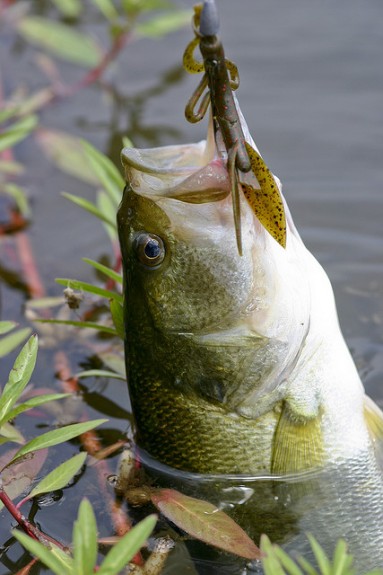Sometimes, Being the Best Dad You Can Be Gets You a Giant Metal Hook in the Face
Fishing selectively targets the best largemouth bass dads

This largemouth bass was just trying to be a good father figure. Photo: Brian Gratwicke
For some animals, being a little bit bold when it comes to hanging out with humans is a strong strategy—think of urban songbirds, swans, squirrels or anything else that we tend to like feeding. But for most animals, coming into contact with people is a sure way to wind up squished, chased off with a broom or hunted down. In some cases, the repercussions of human activity runs in direct conflict to the behavior animals have evolved to express. For largemouth bass, says a new study, the male fish that most aggressively defend their young from potential attackers are also the most likely to chase down and get caught by a fisher’s hook.
Male bass aggression and the drive to defend their eggs is tied up with others sorts of good-dad behavior, say the researchers. The more aggressive fish, says Elizabeth Preston on her blog Inkfish, “also spent more time hanging out near the nest and fanning their eggs with their tails. By comparison, the fish bred to ignore fishhooks spent more time away from the nest and didn’t bother chasing away intruding lures.”
In largemouth bass, male aggression and good-dad behavior are heritable, genetic traits. Since the best bass dads are also the most likely to get hooked and carted away from the eggs they vowed to protect, the result of fishing on largemouth bass, says Preston, is that over time the bass dads could evolve to become flighty, risk-adverse deadbeats.
More from Smithsonian.com:
Making Sense of Sustainable Seafood
Fish to Shrink in Warming Waters
/https://tf-cmsv2-smithsonianmag-media.s3.amazonaws.com/accounts/headshot/smartnews-colin-schultz-240.jpg)
/https://tf-cmsv2-smithsonianmag-media.s3.amazonaws.com/accounts/headshot/smartnews-colin-schultz-240.jpg)